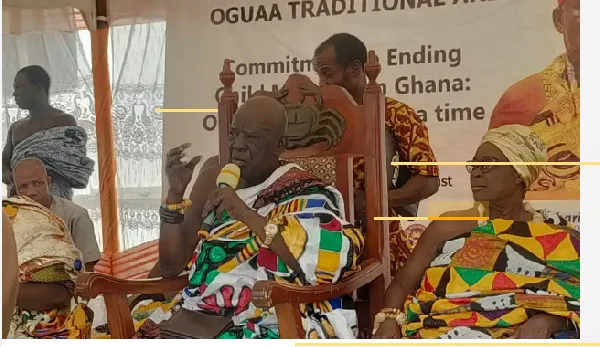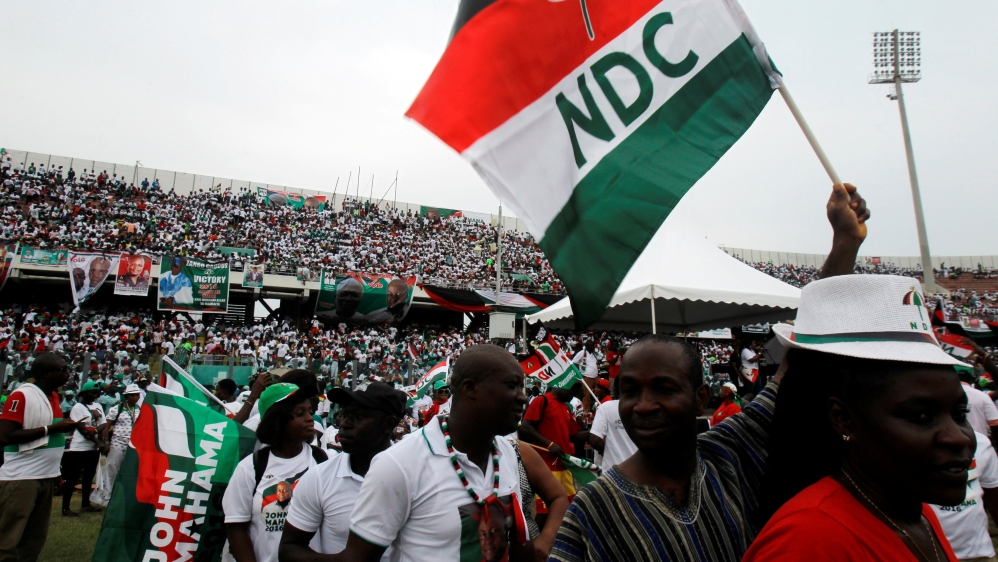The Oguaa Traditional Council has officially declared its commitment to end child marriage in Cape Coast, with a stern warning to perpetrators of the crime.
The Council stated that it would combat this harmful menace through education, advocacy, and legal means, emphasizing that the resolution would remain valid until the objective is achieved.
“We will ensure that any child who is below 18 years will not go into marriage and anybody who would act contrary to undermine the resolution will be in serious trouble with the Council,” Osabarimba Kwesi Atta II,” the Oguaamanhen cautioned.
Osabarimba Kwesi Atta, the Paramount Chief of the Oguaa Traditional Council, made the declaration at a durbar at his seat, the Emintsimadze Palace.
The declaration followed a three-day workshop organized by the Obaapa Development Foundation, an NGO focused on women development, with support from the UNFPA.
The workshop aimed to empower traditional and religious leaders to combat child marriage through education, advocacy, and legal means. The traditional leaders were briefed on the effects of child marriage, including sexually based violence, health complications, and legal provisions and sanctions.
The Council members pledged to fight harmful practices against children and create a community where every child can reach their full potential. Osabarimba Kwesi Atta emphasized the urgency of collaborative efforts with stakeholders to address child marriage and discouraged practices that fuel the menace, such as parents throwing pregnant girls out to stay with the responsible men.
He also expressed concern about schoolgirls engaging in transactional sex for money and stressed the dangers of child marriage. Nanahemaa Adwoa Awindor, the Executive Director of the Foundation, called for intensified awareness campaigns to address the contributions of parents and others to the issue, citing teenage pregnancy as a major cause.
“Anytime we say early child marriage, we are thinking about a religion or a particular community.
“No, we are all encouraging child marriage and the earlier we brought people’s attention to it, the better,” she said.
She emphasized that girls below 18 years old are fragile and susceptible to various health complications, including fistula during childbirth.
Nanahemaa Awindor called for the strict implementation of national and international laws against child marriage and related offenses. Dr. Wilfred Ochan, the Resident Representative of UNFPA, commended the Traditional Council for its commitment to fighting for the rights of young people.
He highlighted child marriage as a human rights violation that denies young people access to education, economic engagement, and participation in governance. Dr. Ochan noted that child marriage remains a significant problem in Ghana, with the prevalence of marriage by age 15 stagnant at about five percent over the last decade, without visible improvement.
“For us in UNFPA, no girl, absolutely none, should be married as a child.
“We aim at achieving zero gender-based violence and harmful practices including child marriage in every country,” he said.

















